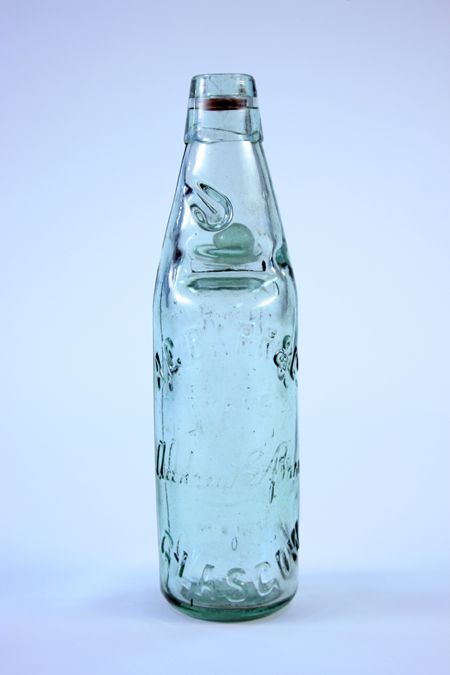
In the late 1800s all soft drinks were sold in glass bottles. Bottles returned to shops were collected by the manufacturer. There wasn’t a deposit scheme in place at this time – the return was completely voluntary. Not far up the road, in Falkirk, Barrs first started making soft drinks way back in 1875, and even if you’re not a fan, their bottle archive is fascinating.
By 1905 bottle returns had dropped off and they were also getting damaged, so drinks companies agreed through their trade body to introduce a bottle deposit system. It started off at one half penny per bottle. Nothing changed for over fifty years.
But then cans were introduced in the 60s, and not long after non-returnable glass bottles started to appear in supermarkets. Enter the plastic bottle in the 80s and the returnable glass bottle became all but history – all Barr one company. Barrs now sells 30 million “returnable bottles” in corner shops and garages every year, mostly locally.
Which is why earlier this year Zero Waste Scotland launched pilots to test deposit / return schemes to se how container deposits and ‘reverse vending’ systems might operate. Why you may ask – it is the classic no brainer, if Barr’s can do it? Partly to understand public acceptance and partly to see if recycling rates and the quality of materials deposited increases, but also to see if they help control litter, which costs Scotland a stonking £50m/year. There’s also fierce resistance in some quarters, so no small challenge then?
If it comes back on the telly, I recommend you check out the BBC4 documentary the “History of Rubbish” as it is a stark reminder of how quickly things have changed in just a few generations – so the question is how will things look in 10 or 20 years time? Probably quite different again. Perhaps in the future there will be more deposit schemes, perhaps local ones; or that service based models will make a come back with leasing replacing buying (if you cannot remember as far back as Radio Rentals then you’ll be familiar with contract phones), and from hearing from hundreds of people about this in the last few weeks, more retailer waste take-back schemes! I am only surprised there isn’t more of this, as those in the know make money from your waste.
